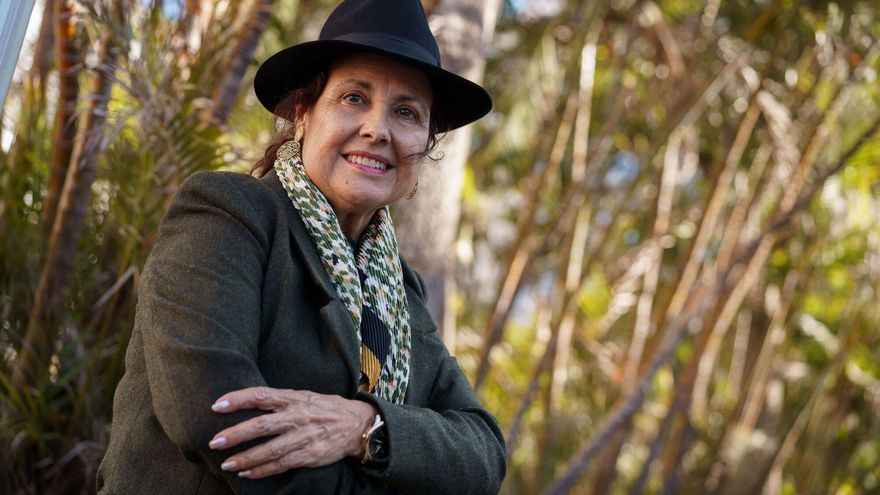
Ignacia Oramas, originally from Tenerife, and María del Castillo Franchi, hailing from Fuerteventura, were the first educators to receive their qualifications in the Canary Islands during the 1863-1864 academic year at the Normal School of Teachers in La Laguna. Their training, notably lacking in geometry and natural history, placed emphasis on “gender roles” and included some “basic notions of hygiene.”
The inaugural teachers certified in the Canary Islands completed their training at the Normal School of Teachers in La Laguna and at the Normal School of Las Palmas.
At the Normal School of Teachers in Las Palmas, the first qualifications were awarded during the 1865-1866 academic year, two years after La Laguna. Five educators gained their elementary certification: Juana Alemán, Ana Navarro, María del Carmen Santana, María del Pilar Gil (all from Gran Canaria), and Tomasa Álvarez from Fuerteventura.
Similar to the first university students from the Canary Islands, the names of these pioneering educators have been documented by Teresa González, a Professor of the History of Education at the University of La Laguna, who shares details about these “teachers’ apprentices” in an interview with Efe.
This research has been published in the Italian journal “History of Education & Children’s Literature”.
Expertise in Needlework
Remarkably, the initial teachers who worked in public schools across the Canary Islands were largely uneducated, mirroring a similar situation throughout the Spanish mainland. Although they possessed some pedagogical skills, they lacked formal academic training. Requirements included honesty and good character, alongside proficiency in needlework and knowledge of Christian doctrine.
These instructors, with minimal formal education and literacy, perpetuated an educational ethos aimed at girls from lower social classes, largely those disadvantaged by circumstance.
This scenario shifted after the regulations for examinations, established in 1839, required aspiring educators to meet specific criteria and undergo assessments to attain their degree through the Examination Commission of the Provincial Board in Santa Cruz de Tenerife.
The curriculum designed for teacher certification included subjects such as religion and morals, reading, writing, arithmetic, gender-specific work, and governance.
“To summarise, their preparation was founded on minimal foundational knowledge, coupled with an extensive focus on vocational skills since teachers were tasked with educating the daughters of the working class, the Future Mothers of Families,” explains the Professor of History of Education.
To qualify for the teaching certificate, candidates were required to fulfil numerous conditions, including a certified baptismal record verifying they were at least 20 years old, proof of good moral and religious behaviour, sewing and embroidery samples created by the applicant, two writing samples of varied sizes, and a marriage certificate if applicable.
Professionally, they often commenced their duties accompanied by a family member, maintaining a respectable image to avoid scrutiny from the neighbourhood, and notably, many left the profession upon marrying, as noted by Teresa González.
“Evidently, these teachers served as role models for women, captivating the attention of girls and young women impressed by their demeanour and attire. Within their communities, they shared their knowledge, offering guidance on domestic issues and child-rearing, effectively acting as family advisors,” comments the researcher.
Instruction in Reading, Writing, Embroidery, and Knitting
Some educators went beyond teaching reading, writing, embroidery, and knitting; they encouraged their students to think independently and act outside traditional societal norms, as these students were not complacent with their situations and aspired to study, achieve qualifications, and pursue teaching careers.
Consequently, they prepared for examinations in private institutions, with tutors, or independently, sitting exams at the Normal Male School of Las Palmas or the Normal Male School of La Laguna.
In this regard, Teresa González notes that obtaining a teaching qualification gradually led to increased educational opportunities for girls and the establishment of more schools for them, thereby improving literacy rates on the islands.
The delay in establishing these institutions in the Canary Islands reflected local governments’ lack of interest in women’s education.
The inauguration of the Normal Teacher School in 1902 created a centre that broadened the array of knowledge accessible to women since, aside from training future educators, other young women attended to enhance the education acquired in primary school, seeking to learn and broaden their intellect.
“These young women defied stereotypes, showcasing a passion for study and learning that prioritised intellectual growth over domestic skills, despite a societal context where attaining higher education was not widely accepted,” expresses the researcher.
Challenges included the scarcity of educational facilities, transport difficulties, and economic barriers, as not all families could bear the costs of travelling between islands, embarking across the sea on Falúa, and then traversing the islands on foot, by horse-drawn carts, or with donkeys, mules, horses, or camels.
The journey could take several hours, often necessitating accompaniment by a family member (mother, sister, aunt), as young females did not typically travel alone during that era.
After 1881, regulations concerning eligibility for teaching qualifications evolved, heightening academic expectations for students, thereby enhancing their education. Curricula were standardised to align with those of aspiring teachers, with the exception of vocational subjects; notably, a third of the weekly schedule was dedicated to domestic issues, recalls Teresa González.
















